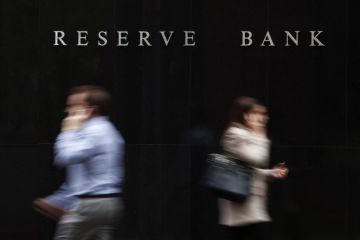Tax hike for Canberra apartments an extra hurdle for first home buyers
The tax hike facing ACT apartment owners could be an extra hurdle for first home buyers hoping to break into the market, property experts say.
Unit owners will see taxes jump an average of 20 per cent from July next year as part of the ACT government’s five-year tax plan; however, commentators say the dollar amount is unlikely to deter investors and downsizers.
Apartment and unit rate bills will increase about 20 per cent from the 2016-17 year, an average of $230, and 15 per cent the following year, an average of $200, due to changes to the way the government calculates the land value for apartments.
The next annual rates bill will be $2152 for a house, on average, and $1156 for a unit.
Chief Minister Andrew Barr said it was appropriate there was “a more even balance in terms of the distribution of the rates burden”, as units and townhouses made up a significant portion of new homes built in the ACT.
Independent Property Group project marketing director Wayne Harriden said the tax increase would spark tightening rents if investors passed on the extra cost, in part or in full, to tenants.
“Cost certainly plays a part in a lot of investors’ decisions,” he said.
Mr Harriden said first home buyers might be harder hit by increasing rates.
“The unit market, it is where first home buyers buy,” he said. “At end of the day, they want to get in the market.”
First-time home owner Michael Reading has noticed his rates slowly creep up since he bought his two-bedroom apartment in Bruce.
“When I first bought it [rates were] about $600 a year and now it’s up to $800 and soon it’s going up even more,” he said.
“It’s a frustrating cost that I probably shouldn’t have to incur, but the ACT government will do what they think is best for the economy and Canberra so I’ll just pay it.”
The owner-occupier said the tax hike, once broken down to a weekly figure, would have less of an impact on his hip pocket.
However, he said the change could have greater implications for residents struggling to pay off their mortgage.
Colliers International director of project marketing in Canberra, Derek Whitcombe, said the 20 per cent tax hike from July 1 was significant but would represent a small increase in dollar terms for most people.
“I think apartment owners have felt fairly blessed in the past in that there’s been a considerable gap between the cost of rates on apartments versus that on free-standing houses and townhouses,” he said.
“I don’t think it [the tax increase] will have a huge impact on most owners, maybe with the exception of first home buyers.
“No one likes to see an increase in rates. I think the most important thing is to keep it in perspective.”
While tenants might fear a possible rise in rent, Mr Whitcombe said the market was driven by mainly supply and demand.
“I don’t know if it will have any real impact on tenants in most areas,” he said.
Rising tax was less likely to deter traditional downsizers, who usually bought properties that attracted lower rates.
“One of the things that’s attractive to downsizers is when they move into an apartment, generally, rates are actually cheaper than they used to,” he said.
“Traditionally, you’re looking at about 80 per cent of the value of the property they are selling. Therefore, they are moving into a lower rating area anyway.”
General rates and land tax –what’s changing?
From July 1, the ACT government will change how general rates and land tax are calculated for multi-unit dwellings. This will be based on the total average unimproved value (AUV) of the land rather than the individual average unimproved value of the unit.
Investors who own residential properties are subject to land tax. In the 2016-17 year, the ACT government will increase the fixed charge on properties by $100. Marginal tax rates and thresholds will also be adjusted.
How will general rates be calculated in the 2016-17 year?
The calculation will involve:
- a fixed charge of $765 for all residential properties
- a valuation-based charge on a property’s Average Unimproved Land Value for 2016 (an average of the property’s 2014, 2015 and 2016 land values)
- a marginal rate applied to the property’s Average Unimproved Land Value (the marginal rate will vary from 0.2746 per cent to 0.5750 per cent, depending on the value of the property)
How will land taxes will be calculated in the 2016-17 year?
The calculation will involve:
- a fixed charge of $1090
- a valuation-based charge on a property’s Average Unimproved Land Value for 2016 (an average of the property’s 2014, 2015 and 2016 land values)
- land tax marginal rates that will apply to residential properties (the marginal rate will vary from 0.41 per cent to 1.23 per cent, depending on the value of the property)
We recommend
States
Capital Cities
Capital Cities - Rentals
Popular Areas
Allhomes
More







